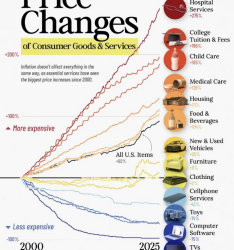You might need a wealth manager if you want to achieve long-term financial stability through quality investments, rather than chasing market trends or relying on standardized financial products. The real question isn’t just about managing money – it’s about whether you need a partner who will help you compound wealth over time while protecting what you’ve built.
Definition and Role of a Wealth Manager
A wealth manager’s role goes beyond basic investment advice. At its core, wealth management is about having a disciplined approach to growing wealth with as little risk as possible. Two principles should drive every decision: achieving desirable long-term results and doing what’s best for you.
Complex Financial Landscape
Today’s investment landscape is filled with conflicting advice and hidden agendas. Many financial professionals are actually salespeople disguised as money managers, more focused on gathering assets and selling products than serving clients. True wealth management requires independent thinking and research, free from corporate pressures and conflicts of interest.
Wealth Preservation Goals
Preserving wealth isn’t just about avoiding losses – it’s about having specific strategies that work in all market conditions. A quality investment approach, combined with specialized risk management like tail hedging, allows you to remain comfortably invested throughout entire market cycles. This matters because real wealth builds over time, not through short-term trading or trying to time the market.
Time and Resource Constraints
Many successful individuals have neither the time nor the inclination to conduct thorough investment research and maintain disciplined portfolio management. The question isn’t whether you could do it yourself – it’s whether managing your own wealth is the best use of your time and expertise.
Tax Optimization Needs
Having a comprehensive tax strategy becomes increasingly important as your wealth grows. This isn’t about complex schemes or aggressive tax shelters. It’s about making thoughtful decisions about investment structure, timing, and location to keep more of what you earn while maintaining full compliance with tax regulations.
Assessing Your Financial Situation
Evaluating Your Net Worth
The decision to work with a wealth manager isn’t solely about how much money you have. It’s about whether your financial situation has reached a level of complexity that requires professional oversight. Our client service approach is designed for individuals with investable assets of $750,000 or more, ensuring we can provide the depth of service and attention your wealth deserves.
Income Analysis
Understanding your income is about tracking what you earn and then seeing how your various income sources – whether from business, investments, or other assets – work together efficiently. A wealth manager should help you structure these income streams for tax efficiency while building toward long-term financial stability.
Investment Portfolio Review
Many investors have accumulated a collection of investments rather than built a coherent portfolio. The difference matters. Quality investing isn’t about owning everything – it’s about owning the right things at reasonable prices. This means conducting independent research rather than relying on third-party recommendations or following market trends.
Retirement Planning Assessments
Retirement planning should focus on creating sustainable income with as little risk as possible. This goes beyond basic RRSP calculations or standard retirement projections. It requires understanding exactly how much you need and building a plan that can weather different market conditions.
Key Questions to Consider
You might need a wealth manager if:
- Your financial situation has grown more complex than your expertise or time allows you to manage
- You want truly independent advice rather than product recommendations
- You’re looking for a comprehensive investment strategy rather than standard financial products
- You need sophisticated tax and estate planning integrated with your investment strategy
- You want a financial professional and firm who puts your interests first
- You want to ensure your assets are protected against market downturns while still growing your wealth
Selecting the Right Wealth Manager
Credentials to Look For
Look beyond standard industry credentials. What matters more is how the firm is registered and whether they’re held to a higher legal standard as a fiduciary. True wealth managers are advising representatives, not dealing representatives focused on selling products. At Avenue, we are an independent private wealth manager, trusted fiduciary, partner-owned firm and CIPF member.
Experience and Track Record
A wealth manager’s experience should be measured by how they’ve navigated different market cycles, not just by years in business. Look for verified performance history and ask how they protected client wealth during market downturns. Their approach during difficult times reveals more than their performance during bull markets.
Personal Fit and Communication Style
The right wealth manager should make complex financial matters clear, not more complicated. They should take time to understand your circumstances and walk you through their investment process. This isn’t about quarterly presentations filled with complex terms you don’t understand, but about having a partner who communicates clearly and stays aligned with your goals.
Cost Considerations
Understanding wealth management fees shouldn’t require a finance degree. True wealth managers are transparent about their compensation structure. The focus should be on value delivered, not just fees charged.
Making The Decision
When Should You Start?
The best time to consider wealth management isn’t when you reach a certain net worth – it’s when you want to ensure your wealth grows and lasts. This means having a partner who thinks independently, conducts thorough research, and maintains a disciplined approach to protecting and growing your wealth.
Preparing To Partner with a Wealth Management Firm
Starting a wealth management relationship is less about transferring your assets. It’s about understanding how your wealth manager thinks, what drives their decisions, and how they’ll work with you over time. The right firm will take time to explain their approach and ensure you’re comfortable with their strategy before moving forward.
Frequently Asked Questions
What makes wealth management different from basic investment advice?
Wealth management is having a disciplined approach to preserving and growing wealth through quality investments, with specific strategies that work across all market environments. A true wealth manager takes a holistic approach and integrates investment management, tax planning, and estate considerations into one cohesive strategy.
How much money do I need to work with a wealth manager?
At Avenue, we work with clients who have investable assets of $750,000 or more. This threshold ensures we can provide the depth of service and personal attention necessary for effective wealth management. However, the decision isn’t just about asset size but about whether you need sophisticated wealth management strategies and truly independent advice.
How do I know if I’m ready for wealth management?
You’re ready for wealth management when you want more than standard financial products and cookie-cutter advice. When you value independent thinking, quality investments, and a partner who puts your interests first, it’s time to consider professional wealth management.
Take the Next Step
Understanding whether you need a wealth manager is the first step toward achieving long-term financial stability. Contact us to discuss how our approach might align with your financial goals and whether we’re the right partner for your wealth management needs.



